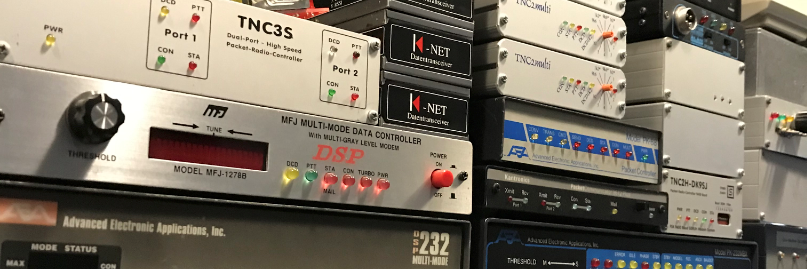Download Jnos 2.0k Source Jnos
July 26, 2016 - Compile instructions for JNOS 2.0k
1) There is NO incremental update from previous versions, too much
has changed, and a mass compile is required anyways.
Put the compressed tar file into an empty directory, then :
gunzip jnos2.0k.tar.gz
tar xvf jnos2.0k.tar
cd jnos/src/rsync
2) Before you compile and IF you have your own config.h from a previous
version of JNOS 2.0, then you can copy it over if you like. However, if
you choose to do this, do a 'diff' between your 'config.h' and the new
'config.h.default' shipped with JNOS 2.0k - to see what new features
you might be missing out on. It is probably not a big deal, but you
should know about it anyways.
IF you are starting from scratch, the compile process automatically
copies the 'config.h.default' to 'config.h' (only if the latter is not
present) and then compiles the whole thing.
IF you want to edit a new config.h BEFORE the compile starts, then use
the 'make defconfig' command first. That will create the 'config.h' for
you, then you can edit it to suit your own preferences.
3) To compile and link JNOS, just enter the 'make' command.
Please note that warnings may happen, although with this release I have
made extra effort to try and clean them ALL up, your mileage will vary.
4) That's it, if all goes well, you should have a new 'jnos' binary.
5) Why is 'jnos' binary so large AND what to do about JNOS crashing !
Note that my makefile has debugging turned on, so any 'jnos' binary
you compile will be large (because it contains debuggin info). If you
are not at all interested in debugging, then you can reduce the size
of the 'jnos' binary using the following command :
strip jnos
which will strip out the debugging information and symbol table.
If you ARE interested in helping me fix bugs, then I encourage you to
run the GDB debugger that comes with most linux distros, AND make sure
you do NOT strip the 'jnos' binary, since it contains important info for
the debugger to use when a crash occurs.
Using GDB is easy. With JNOS running already, find out it's pid, using
the linux command, 'ps -ef | grep jnos'. Once you know what the pid is,
then run the gdb debugger something like this :
gdb -p pid
GDB will load, JNOS will hang temporarily, and GDB will suddenly give
you a prompt. Enter the command, 'continue', at the prompt, and JNOS
will continue to run again.
When a crash occurs, GDB will break out to the prompt again, and JNOS
will hang. Take a screen shot of what GDB printed out, then type in
the command, 'back full', at the GDB prompt, and note the info that
appears. Please send all of that information to me, with a brief
explanation of what might have been going on at the time.
If you have JNOS logging in effect, please send me the log file at
the time of the crash if you don't mind. Logs are under /jnos/logs/
directory (by default).
JNOS 2.0k released - 26Jul2016
* Maiko Langelaar / VE4KLM

Hello Niels
I’m trying to install jnos in rpi as per above instruction. But when I do item 3 (make) the compilation ends with error:
wlauth.c:31:25: fatal error: openssl/md5.h: No such file or directory
I did not find where is openssl/md5.h
Please can you help me to resolve it.
Thank you 73
Libor
Niels please drop my request. I resolved it. It must be installed 2 items:
apt-get install libssl-dev
apt-get install libncurses5-dev libncursesw5-dev
I had not installed it. Now the JNOS is has compiled successfuly. I’ll try it now running within
my ax25 system.
73
Libor